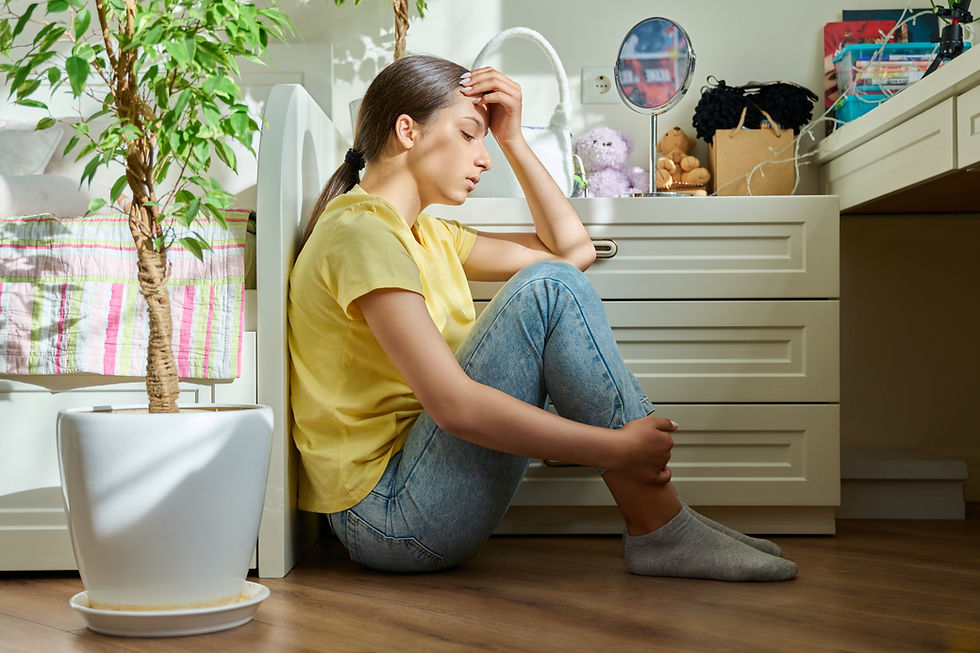Signs Your Depression Might Be More Than Just Burnout
- jenniferlundy0
- Apr 29, 2025
- 3 min read

In today’s fast-paced world, feeling exhausted and overwhelmed has become the norm for many people. However, there is a fine line between burnout and depression. While burnout can affect your physical and mental well-being, it is usually tied to work-related stress and improves with rest and lifestyle changes. Depression, on the other hand, is a serious health condition that goes beyond workplace fatigue and can impact all aspects of life. Understanding the difference between burnout symptoms and depression symptoms is crucial to getting the right help.
Burnout vs. Depression: Understanding the Difference
The World Health Organization (WHO) defines burnout as a syndrome resulting from chronic workplace stress that has not been successfully managed. It is characterized by feelings of energy depletion, increased mental distance from one’s job, and reduced professional efficiency. While burnout can affect your physical and emotional health, it is typically reversible with changes in workload and self-care.
Depression, however, is a clinical mental health condition that extends beyond workplace stress. It can affect personal life, relationships, and overall functioning. If left untreated, it can lead to depression becoming more severe, making it essential to recognize when your symptoms go beyond burnout.
Key Signs Your Depression Might Be More Than Just Burnout
1. Persistent Feeling of Sadness
Feeling sad is a normal human emotion, but when sadness lingers for weeks or months without improvement, it may indicate developing depression. Unlike burnout, which often improves with time off, depression symptoms persist regardless of external changes.
2. Loss of Interest in Activities
Burnout typically affects work-related motivation, but depression can strip joy from all areas of life, including hobbies, social interactions, and personal relationships. If you find yourself losing interest in things that once made you happy, it could be a sign of depression.
3. Physical Symptoms That Don’t Go Away
Both burnout and depression can cause physical symptoms like fatigue and headaches, but depression often brings additional issues like chronic pain, digestive problems, and sleep disturbances that don’t improve with rest. If you’re experiencing ongoing physical and mental exhaustion, it may be time to seek professional help.
4. Feelings of Hopelessness or Worthlessness
Burnout can make you feel unmotivated or frustrated with work, but it usually doesn’t lead to deep feelings of hopelessness. Depression, on the other hand, can bring persistent thoughts of worthlessness, guilt, or even suicidal ideation. If you are experiencing these thoughts, reach out to a mental health professional immediately.
5. Difficulty Functioning in Daily Life
Burnout primarily impacts work performance, while depression can interfere with all aspects of daily life. If simple tasks like getting out of bed, maintaining personal hygiene, or engaging in social activities feel overwhelming, depression may be the underlying issue.
Risk Factors That Can Lead to Depression
While burnout is a risk factor for developing depression, other factors contribute to its onset, including:
· A family history of mental health conditions
· Chronic stress or traumatic life events
· Lack of social support
· Substance abuse
· Existing medical conditions Recognizing these risk factors early can help in taking proactive steps toward mental well-being.
When to Seek Professional Help
If your symptoms are affecting your personal life, relationships, or overall well-being, it’s important to reach out to a mental health professional. A licensed health professional can assess your symptoms, provide a proper diagnosis, and develop a treatment plan tailored to your needs. Seeking support is not a sign of weakness, it’s a step toward healing.
Take the First Step Toward Mental Wellness
If you suspect that your symptoms go beyond burnout, don’t ignore them. Reach out to Positive Change Counseling Center today to get the support you deserve. You are not alone, and with the right help, you can regain a sense of balance and well-being.




It's important to pay attention to your mental health, especially if you've been feeling persistently sad, empty, or hopeless. For a private and immediate way to check in on your feelings, a free online depression test can help you screen for potential symptoms.